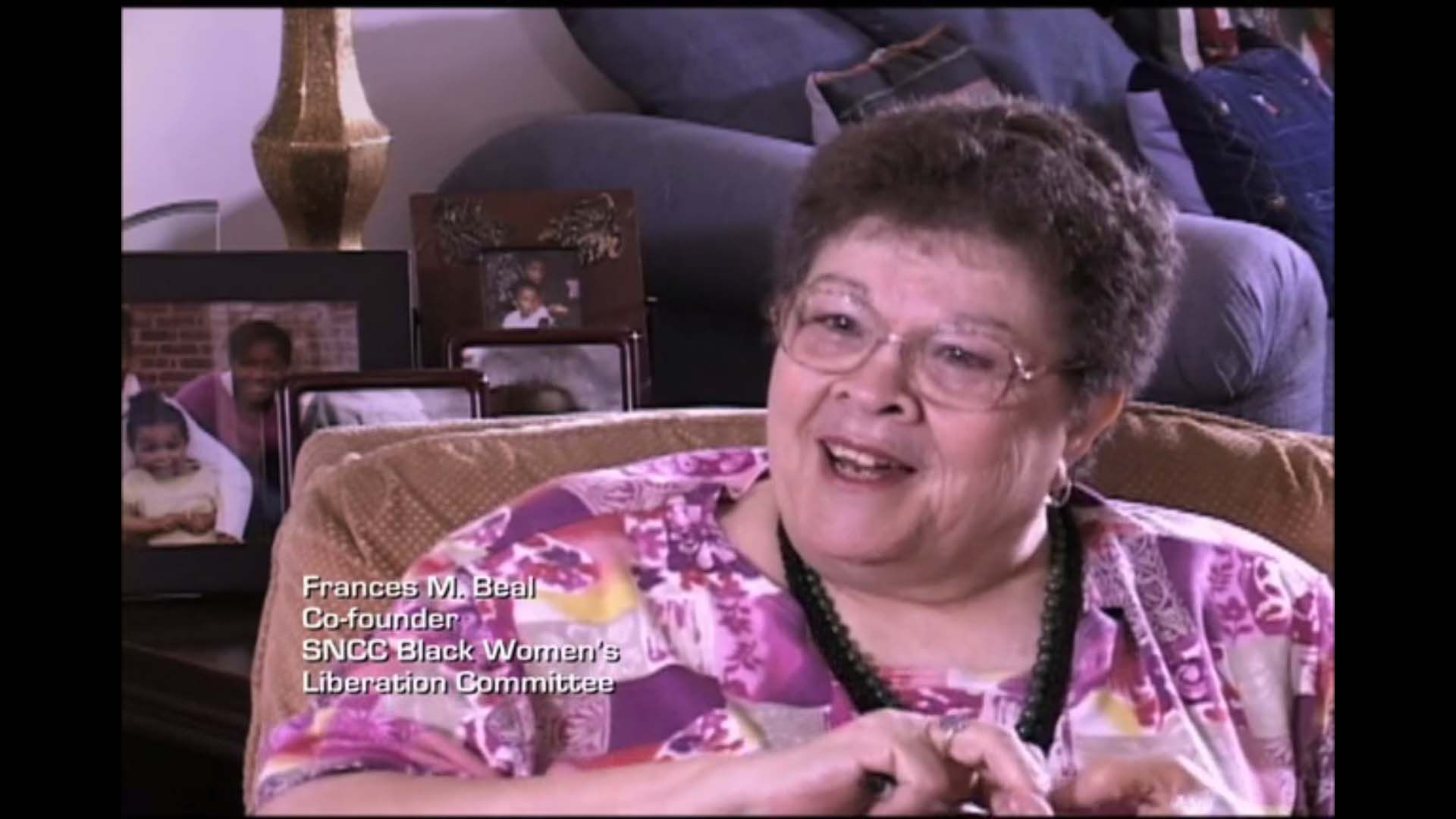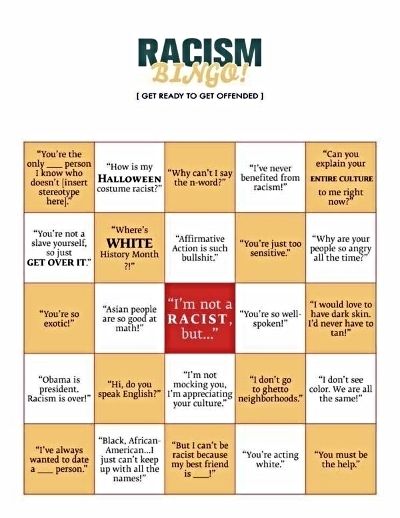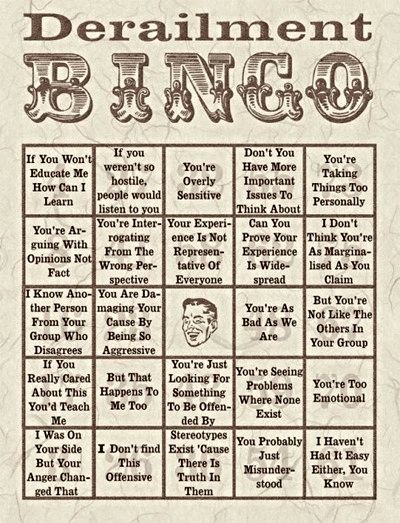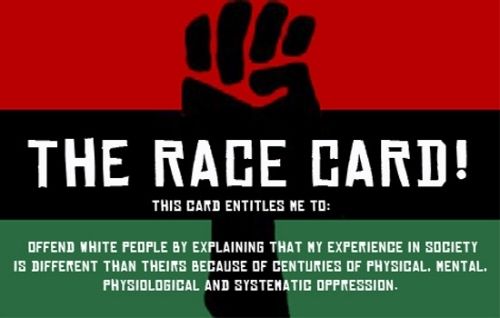
Florynce “Flo” Kennedy
When it was suggested I write about racism, to follow Patriot Daily News Clearinghouse's excellent Tips for Seeing Sexism,
part 1 and
part 2, I got a bit overwhelmed. I could head straight to "tips", but I felt like I should address how I negotiate racism linked to sexism—since I am both black and female—and put it into an historical context, since my own mode of coping with the duality sometimes flows smoothly together inside my head, and other times race and gender wage an internal battle over just where the "intersections" that we talk about are. This internal struggle has been part of an ongoing process, and I'm still learning and growing. That process was influenced by a diverse group of women, so bear with me, while I introduce them to those of you who may not know them, or reintroduce them to those of you who do.
Florynce Rae "Flo" Kennedy was born February 11, 1916 and died December 21, 2000. I was in my early teens when i first saw and heard Flo Kennedy. I remember being bowled over by her brash, outspoken, tough and loving demeanor, and her flamboyant blackness...she was able to keep a foot in two camps...black struggles and working and fighting alongside white feminists. She, and Shirley Chisholm, and Bella Abzug shaped some of my early views about how I wanted to "be" when I got older.
Here she is in a clip from "The Year of the Woman" 1973 documentary by Sandra Hochman.
You can read both her autobiography, and an excellent biography to learn more:
COLOR ME FLO ~ My Hard Life and Good Times, by Flo Kennedy
Flo Kennedy? ""I'm just a loud-mouthed, middle-aged colored lady with a fused spine and three feet of intestines missing. And a lot of people think I'm crazy."" A lot of other people don't. Civil rights activist, militant feminist, the first black woman to graduate from Columbia Law School, Flo speaks her mind, pulls no punches, and the devil take the hindmost. An intensely political person (""everything in our culture is political""), Flo specializes in what she calls the ""testicular approach."" She scorns conventional liberal pieties (Martin Luther King's aim, she says, ""was to make relatively minor social changes""). She thinks, has always thought, that marriage ""is a crock"" but talks with astounding frankness about her own--to a drunken Welsh sci-fi writer, no less. She talks dirty and vulgar because she perceives that the realities of power are dirty and vulgar. She's been ""kicking ass"" for 60 years and just enjoying the hell out of it. Flo being Flo, it shouldn't be necessary to say that this is not an ordinary autobiography. But for the record. . . it's a grab bag of speeches, rhetorical blasts, newspaper clippings, poems, photographs, memories of a secure and happy childhood (""we never felt like losers""). And her magnetism and love color all of it, unmistakably, Flo.
Florynce “Flo” Kennedy: The Life of a Black Feminist Radical, by Sherie M. Randolph
Often photographed in a cowboy hat with her middle finger held defiantly in the air, Florynce "Flo" Kennedy (1916–2000) left a vibrant legacy as a leader of the Black Power and feminist movements. In the first biography of Kennedy, Sherie M. Randolph traces the life and political influence of this strikingly bold and controversial radical activist. Rather than simply reacting to the predominantly white feminist movement, Kennedy brought the lessons of Black Power to white feminism and built bridges in the struggles against racism and sexism. Randolph narrates Kennedy’s progressive upbringing, her pathbreaking graduation from Columbia Law School, and her long career as a media-savvy activist, showing how Kennedy rose to founding roles in organizations such as the National Black Feminist Organization and the National Organization for Women, allying herself with both white and black activists such as Adam Clayton Powell, H. Rap Brown, Betty Friedan, and Shirley Chisholm.
Making use of an extensive and previously uncollected archive, Randolph demonstrates profound connections within the histories of the new left, civil rights, Black Power, and feminism, showing that black feminism was pivotal in shaping postwar U.S. liberation movements.

One of the more difficult struggles I faced as an older teenager in college and as an activist, was dealing with brothers in the movement who tended to push women to the back of the bus, or just want us to type. Our first and foremost allegiance had to be to be to Black Power, and the whole "woman thing" had to wait. I wasn't happy with that, nor comfortable. Frances Beal was waging struggle with this inside of SNCC and later founded the Black Women's Alliance, which then became the "Third World Women's Alliance"
A key document from that group was
Double Jeopardy: To Be Black and Female, written by Fran, which was part of the
Black Women's Manifesto Pamphlet.
It raised an issue that made some of the white readers uncomfortable:
RELATIONSHIP TO WHITE MOVEMENT
Much has been written recently about the white women's liberation movement in the United States and the question arises whether there are any parallels between this struggle and the movement on the part of black women for total emancipation. While there are certain comparisons that one can make, simply because we both live under the same exploitative system, there are certain differences, some of which are quite basic.
The white women's movement is far from being monolithic. Any white group that does not have an anti-imperialist and anti-racist ideology has absolutely nothing in common with the black women's struggle. Are white women asking to be equal to white men in their pernicious treatment of third world peoples? What assurances have black women that white women will be any less racist and exploitative if they had the power and were in a position to do so? These are serious questions that the white women's liberation movement has failed to address itself to.
The same year Fran, and other sisters in NYC were meeting to figure out how to negotiate race, gender and class oppression as an all women's group, sisters in the Young Lords Party were dealing with the same struggles, while attempting to stay in a mixed gender group. We formed a Women's Caucus (we also attended some of the organizing meetings for the Third World Women's Alliance) and drafted a Position Paper on Women, the first of its kind in a revolutionary nationalist organization.
In 1970 members of the Young Lords Party Women's Caucus published a
Position Paper on Women, which was adopted by the Party as a whole, and published in the Palante newspaper.
The historic importance of that statement is discussed by Jennifer A. Nelson in "ABORTIONS UNDER COMMUNITY CONTROL": Feminism, Nationalism, and the Politics of Reproduction among New York City's Young Lords
At the same time, the YLP distinguished themselves from other contemporary nationalist organizations by demanding a broad reproductive rights agenda, which included the right to legal abortion. Most nationalist organizations of the early 1970s, including the Black Panther Party and the Nation of Islam, were staunchly opposed to abortion or any other form of reproductive control, even if voluntarily chosen. These nationalists insisted that by increasing their numbers, people of color would gain political power. They called upon women to bear children as their contribution to the Black Power movement. By contrast, the Young Lords' pro-fertility control position developed as a result of the actions of a few very outspoken and powerful women within the organization. These women were sympathetic to radical feminist thought espoused by women's liberation organizations proliferating in New York City in the late 1960s and early 1970s. Several Young Lords women participated in women's liberation organizations, although their primary definition of themselves was as Young Lords. These women ensured that feminist demands for safe, legal contraception, abortion, and other reproductive rights were an integral part of the Young Lords' politics. Although initially women were not taken seriously by most male members, by 1970--the one-year anniversary of the group's existence--they had radically altered the political ideology of the group. For the first time, a nationalist and multiracial organization, composed of people of African, European, and native descent, made an explicitly feminist position central to their political ideology.
The reproductive rights agenda developed by female YLP members between 1969 and 1974 was inclusive: it encompassed access to voluntary birth control, safe and legal abortion, a quality public health care system, free day care, and an end to poverty among Puerto Ricans and other people of color. It also combined two distinct strands of political thought. The first was a nationalist politics--emphasizing the right of poor people of color to control local institutions, an end to poverty among people of color, and anti-genocide rhetoric--articulated most stridently by the Black Panther Party and the Nation of Islam in the late 1960s and early 1970s. The second was a feminist politics that demanded a woman's right to control her own reproduction, articulated by women's liberationists during the same period. As female Young Lords pushed feminism to the center of the Young Lords' nationalist political ideology, reproductive rights gained increasing importance. After their first year, the YLP openly insisted in their position paper on women that Puerto Rican women had a right to bear the number of children they wanted and raise them in a prosperous environment.
The other major issue we had to confront, as Young Lords was racism in the Puerto Rican Community - directed at African Americans, and internally against Afro-Puerto Ricans, with issues around skin color (lighter-skinned was best) and hair -"good hair"(pelo bueno) was European hair, "bad hair" (pelo malo) was kinky. We did weekly political education classes addressing issues of both racism and sexism. Also, our community work in coalition with the Black Panther Party began to erode many of those attitudes in the community and within the organization.
A few years later Native American Women use their own interpretation of feminism, and formed Women of All Red Nations, as an outgrowth of the American Indian Movement (AIM)
Women of All Red Nations (WARN) was a Native American women's organization. It was established in 1974 by Lorelei DeCora Means, Madonna Thunderhawk, Phyllis Young, Janet McCloud, and others. WARN included more than 300 women from 30 different tribal communities. Many of its members had previously been active in the American Indian Movement and were participants in the 1973 Wounded Knee incident. The inaugural conference took place in Rapid City, South Dakota.
WARN championed the health of Native American women, the restoration and securing of treaty rights, eliminating Indian mascots for sports teams, and combating the commercialization of Indian culture. They highlighted the high rates of health issues caused by nuclear mining and storage on Indian land, such as birth defects, miscarriages and deaths. They also expressed concerns about forced sterilization of Indian women and the adoption of Indian children by non-Indians.
Most of you know I use this as a sig-line here on Daily Kos:
If you're in a coalition and you're comfortable, you know it's not a broad enough coalition." Dr. Bernice Johnson Reagon
Most of you however, may not know the history of where it came from. Bernice Johnson Reagon, is a civil rights movement activist, ethnomusicologist, and founder of Sweet Honey in the Rock. At the West Coast Women's Music Festival in 1981 which was held in Yosemite National Forest, CA she gave this speech (it's where I get my sig):Coalition Politics: Turning the Century.
Arriving at the festival she found herself addressing a group of almost all white women. She challenged the women there to get out of their safe homogeneous spaces. That it would not be easy, or comfortable but it was (and is) necessary if we are to win our struggles.
So what does all this history have to do with racism? (you may be wondering)
Finding shared struggles, and working within fusion movements a first step in combating racism. I'm talking about a racism often found on the left, among liberals, progressives and radicals.
Oh, it isn't the cross burning, negro lynching, blatant racism folks can point to and reject easily. It is a self-satisfied complacency that declares "I am a good person, I want good for the world" and goes no further than that. Just cause you may like some black people, or even hang out with a few, or even married or partnered with one of us, doesn't mean you haven't been tainted and affected by the racism this nation was founded upon.
It also means getting over some of your own ideas about what is and what isn't "progressive" Making disparaging remarks about other people's cultures in a holier than thou tone will not win friends, organize anyone, or help you grow. Here's an example: You are invited to a black community meeting. It happens to be in a church. You are visibly uncomfortable because you "don't do churches." You are an "enlightened atheist" you proudly proclaim.
Fail. Do not pass go, do not collect anything but scorn.
Or some black folks invite you into their home. They ask you to stay for dinner. You spend the next hour announcing how you are vegan and you shudder at the idea that poor little helpless chickens are slaughtered to feed people.
Sigh.
One of my first "tips" for dealing with racism you may not even see you have, is working in groups with people of color where you are not the leader, or the boss, or the project organizer. Where you can learn to open your ears and listen. I learned a lot about my own biases working in coalition with Native Americans, Asian Americans and Latinos. Same goes for working in LBGTQ run groups. I know how to survive in a white run world, and am no stranger to being subordinate to whites (that's the status quo here) but found I had a lot to learn about other not-black groups and cultures. If you are white and a feminist (female or male) learn to accept that "feminism" is really "feminisms." It is not and never will be one size fits all.
Don't automatically dismiss that you have deep-seated bias. We all do. There is no way in hell that we are not affected by what we see, read, hear and are taught at home and in school.
Take the Implicit Association Test, to find out about your own racial biases.
I have fun with my students discussing these BINGO cards.

Which boxes do you recognize?
Many of the places where racism is discussed, one can also find people unconsciously (or relentlessly) derailing the discussion, most often when it is a person of color speaking (or someone that is assumed to be one). The same type of derailing takes place when feminists are speaking.

Oh yeah - and the final graphic is one I've been planning to use when I've had my fill of white-splaining, or people upset by my "always bringing up that race stuff"

Looking forward to hearing both your tips, and experiences with your own internal struggles.


